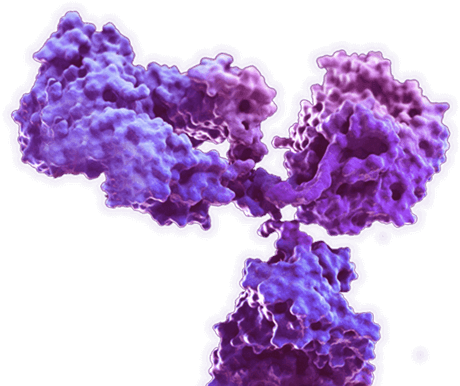AibGenesis™ Mouse Anti-tax Antibody (MOFAB-163W)
Cat: MOFAB-163W

Certificate of Analysis Lookup
To download a Certificate of Analysis, please enter a lot number in the search box below. Note: Certificate of Analysis not available for kit components.
Lot Number
To download a Certificate of Analysis, please enter a lot number in the search box below. Note: Certificate of Analysis not available for kit components.
Lot Number
| Size: | |
| Conjugate: | |
| Inquiry |
- Specifications
- Application Information
- Target
Specifications
| Host species | Mouse |
| Species Reactivity | Htlv |
| Clone | W1A3 |
| Specificity | This antibody reacts with HTLV-1 Tax expressed in transiently transfected cells. |
| Immunogen | Recombinant full-length HTLV-Tax protein. |
| Format | Liquid or Lyophilized |
| Buffer | Lyophilized |
| Regulatory Status | For Research Use Only |
| Shipping | Gel Pack |
| Storage | Store at 4°C: short-term (1-2weeks) Store at -20°C: long-term and future use |
| Purification | Protein A |
Application Information
| Application | WB, IHC, ELISA |
| Application Notes | ELISA: 0.1-1.0ug/ml IB: 2-10ug/ml IHC: 2-20ug/ml The optimal dilution should be determined by the end user. |
Target
| Introduction | Transcriptional activator that governs the viral transcription from the 5'LTR via the recruitment of dimers of host phosphorylated CREB1. Together they bind cAMP response elements within the viral promoter and mediate high-level viral transcription. Increases host CREB1 O-GlcNAcylation to further increase 5'LTR transactivation. Modulates also the expression of cellular genes leading to the deregulation of T-cell proliferation, perturbing the integrity of cell cycle checkpoints, the DNA damage response and apopototic pathways. Acts as an ubiquitin E3 ligase and stimulates host IKK complex by catalyzing the assembly of free mixed-linkage polyubiquitin chains, resulting in constitutive activation of the transcription factor NF-kappa-B. Inhibits the host nonsense-mediated mRNA decay (NMD), a cellular process that can actively degrade mRNAs by interacting with host UPF1. (From uniprot, under CC BY 4.0) |
| Product Overview | The tax antibody is used as Infectious Disease Antibodies. |
| Alternative Names | HTLV-1 Tax; tax; p40; HTLV-1 Tax |
| Gene ID | 1491938 |
| UniProt ID | P14079 |
For Research Use Only | Not For Clinical Use.
Online Inquiry


